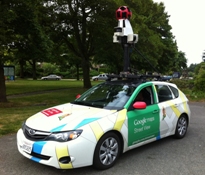‘Click’ . . . You Just Agreed To Sell Your Privacy
We have all gone to a website and, in accessing the website’s services, have agreed to “terms and conditions” that include a litany of policies, including privacy policies governing how the company maintaining the website will use our personal information obtained while accessing the website. And let’s be honest, even as attorneys or soon-to-be-attorneys, many of us usually do not actually take the time to read the laundry list of items we are agreeing to just so we can obtain a 20% coupon. I know I’m guilty of regularly clicking “I agree” without reading every term and condition.
 While we may think our assent to a website’s terms and conditions has little effect on our everyday life, our agreement does in fact matter, and not just for us but also for the company maintaining the website. For example, one such specific website that most, if not all, of us have used is Facebook. While, again, we likely have not paid very close attention to Facebook’s privacy policies such as its data and cookie policies, those policies explain that Facebook uses cookies or browser fingerprinting to identify users and track what third-party websites users browse. This use of cookies or browser fingerprinting is why you see ads for products or services that are, or at least should be, most relevant to you. Indeed, these processes are why I now regularly see ads for Nintendo products when on Facebook after having searched for and purchase Nintendo’s handheld 3DS video game system for my ten year old son.
While we may think our assent to a website’s terms and conditions has little effect on our everyday life, our agreement does in fact matter, and not just for us but also for the company maintaining the website. For example, one such specific website that most, if not all, of us have used is Facebook. While, again, we likely have not paid very close attention to Facebook’s privacy policies such as its data and cookie policies, those policies explain that Facebook uses cookies or browser fingerprinting to identify users and track what third-party websites users browse. This use of cookies or browser fingerprinting is why you see ads for products or services that are, or at least should be, most relevant to you. Indeed, these processes are why I now regularly see ads for Nintendo products when on Facebook after having searched for and purchase Nintendo’s handheld 3DS video game system for my ten year old son.

 All of the interest in the Supreme Court tomorrow is likely to be focused on
All of the interest in the Supreme Court tomorrow is likely to be focused on